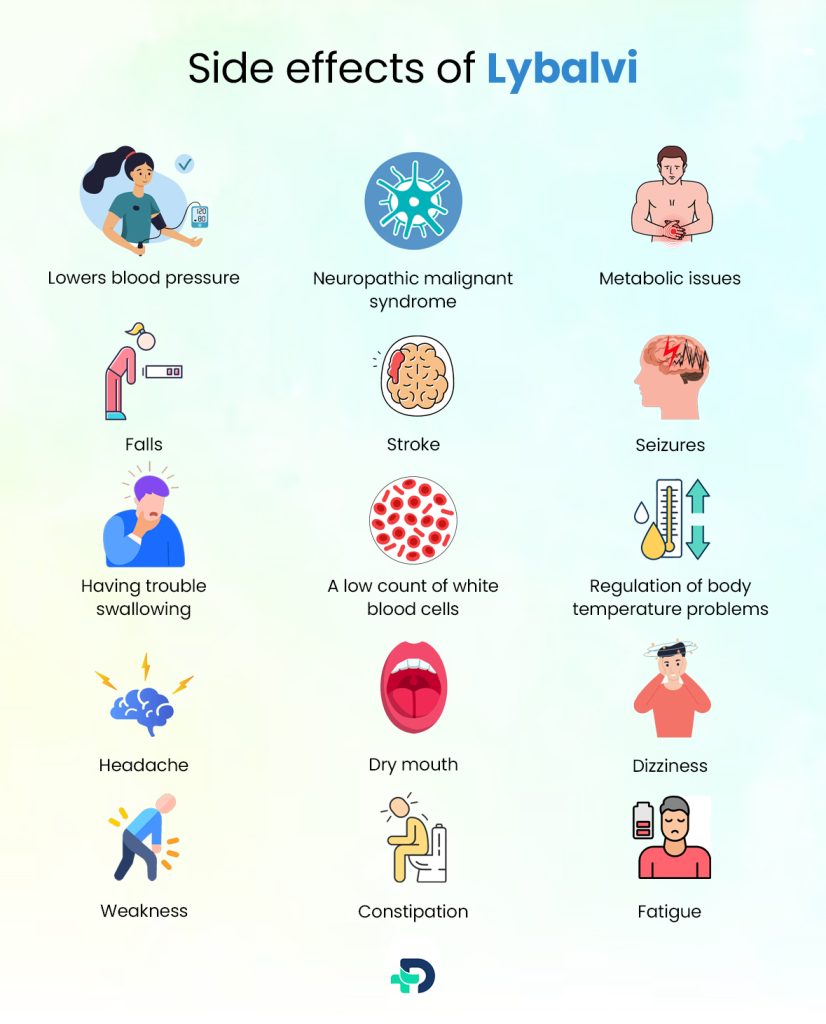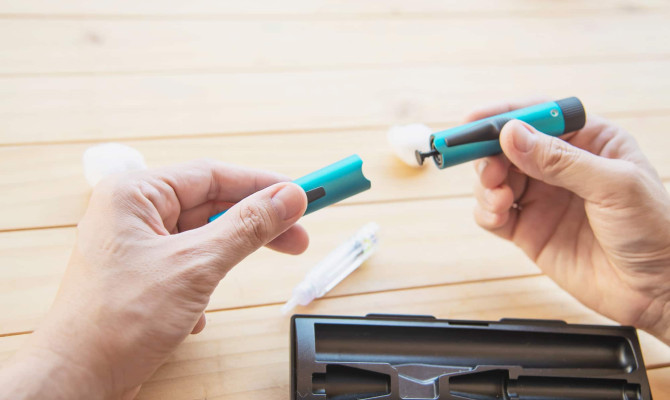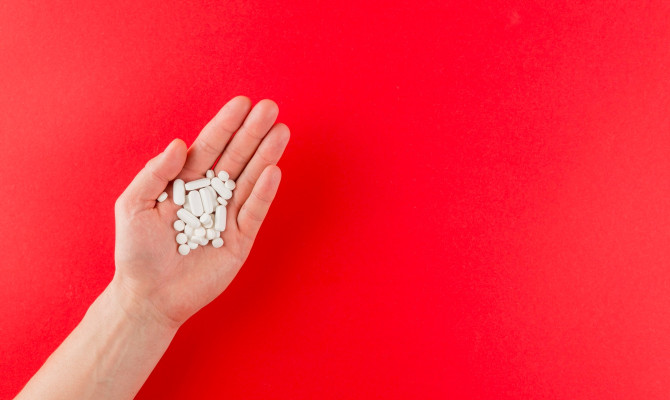Lybalvi: Uses, Side Effects and Precautions

- Lybalvi
- 30 Aug 2023
Introduction
What is Lybalvi?
Lybalvi is a cutting-edge medication designed to address a range of psychiatric disorders, including anxiety, depression, and bipolar disorder. Its distinct mode of action targets particular neural circuits, regulating mood, reducing symptoms, and enhancing general wellness. In 2021, the Food and Drug Administration (FDA) gave it the go-ahead to be used.
The science underlying this unique medicine will be examined in this article, along with any potential advantages and the moving testimonies of individuals who have witnessed its changing effects.

Uses
Lybalvi Uses
Olanzapine, a typical antipsychotic, and samidorphan, an opioid antagonist is combined. Lybalvi used for the following conditions:
- Schizophrenia
- Bipolar 1 disorder
Schizophrenia:
- It is given for managing adult-onset schizophrenia, a chronic brain condition that impairs reality perception, thinking, and behavior and causes hallucinations, delusions, and disordered thinking. This medication’s olanzapine content delivers a favorable effectiveness profile.
- Numerous long-term outcome areas, such as relapse prevention (preventing or delaying the recurrence of acute exacerbations of the symptoms), have shown that olanzapine is beneficial over the long run. 2Uses | Researched based study from National Library of medicine
Bipolar 1 disorder:
- Additionally, it plays a part in bipolar one disorder. It can act as an adjuvant to lithium or valproate and a stand-alone therapy for managing manic or mixed episodes.
- The drug also has the potential to be used as a maintenance monotherapy for bipolar disorder.
- This broad spectrum of uses highlights Lybalvi’s adaptability and potency in dealing with the condition’s complexity. 1Uses | Researched based study from Food and Drug Administration
Dosage
Dosage and Administration
Understanding the suggested dosage and ensuring adequate administration is necessary for optimal administration. The recommended doses may change depending on the treated illness and the patient’s reaction to the medicine.
For schizophrenia:
- The usual initial dose is 5 mg/10 mg, taken orally once daily.
- The initial dose can then be raised to a maximum of 20 mg/10 mg once daily, depending on the clinical response and tolerability.
By gradually changing the treatment, healthcare providers better balance the demands of each patient and strike the right balance between effectiveness and tolerance.
For bipolar 1 disorder:
- It can be used alone or with additional medications like lithium or valproate.
- With a maximum recommended dosage of 20 mg/10 mg once a day
- The suggested dosage for the start of monotherapy is either 10mg/10mg or 15mg/10mg once daily.
The dosage flexibility allows clinicians to obtain the desired impact while examining negative responses or side effects. 1Dosage | Researched based study from Food and Drug Administration
Side Effects

Side effects of Lybalvi
- Stroke
- Neuropathic malignant syndrome
- Metabolic changes
- Uncontrolled body movements
- Low blood pressure
- Dizziness
- Fatigue
- Drop in white blood cells
- Difficulty swallowing
- Seizures
- Changes in body temperature
- Weight gain
- Constipation
Following are the side effects listed:
Stroke
- Particularly in elderly individuals with psychosis connected to dementia that results in mortality.
Neuropathic malignant syndrome
- A serious condition that manifests as high temperature, tense muscles, disorientation, and other symptoms.
Drug reaction with eosinophilia and systemic symptoms (DRESS)
- It contains olanzapine, which can result in DRESS, a grave and possibly deadly response. If this is suspected, monitoring and drug cessation are crucial.
Metabolic issues
- Elevated fat levels, diabetes risk, high blood sugar, and weight gain.
Uncontrolled movements of the body (Tardive Dyskinesia)
- Irregular facial, tongue, or bodily movements.
Lowers blood pressure and causes dizziness
- A chance of dizziness and fainting after shifting positions.
Falls
- Fatigue, vertigo, slow thinking, and motor skills that could cause fractures or other injuries.
A low count of white blood cells
- During the first few months of treatment, blood tests may be performed.
Having trouble swallowing
- May lead to the inhalation of food or liquid
Seizures
- Convulsions may occur.
Regulation of body temperature problems
- Risk of overheating when exposed to certain triggers.
Common adverse reactions to medicines for schizophrenia
- Increased weight, fatigue, dry mouth, and headache.
Common adverse effects to medicines for bipolar 1 disorder
- Constipation, a dry mouth, increased hunger, weakness, tiredness, and dizziness. 1Side effects| Researched based study from Food and Drug Administration
Overdose
Overdose with Lybalvi
- Agitation/aggressiveness
- Elevated heart rate
- Speaking difficulties
- A reduced state of consciousness ranging from sedation to coma
- Dysarthria
Less common symptoms recorded include:
- Aspiration
- Cardiopulmonary arrest
- Cardiac tachycardia
- Convulsions
- Delirium
- Both high and low blood pressure
- Respiratory arrest or depression.
Continuous vital sign monitoring, supportive care, and the use of effective drugs may be needed to address the symptoms of an overdose. 1Overdose| Researched based study from Food and Drug Administration
Precautions
Precautions and Considerations
Although it has good promise for treating mental diseases, it is essential to be aware of any potential risks and safety concerns before using it.
Opioids
- Patients who are taking opioids concurrently or are going through acute opioid withdrawal should be used with caution. Lybalvi is not advised for those who are susceptible to experiencing severe opiate withdrawal because of this risk.
- Before beginning treatment, doctors must evaluate and consider a minimum opioid-free period.
Orthostatic hypotension
- Another critical factor is considering the possibility of orthostatic hypotension, which is merely one of this medication’s side effects, particularly during initial dose titration and adjustment.
- Orthostatic hypotension-related changes in vital signs and symptoms should be actively watched for in patients at higher risk, such as the elderly, those with heart conditions, or those receiving antihypertension medications.
Metabolic changes
- During treatment, it’s essential to watch for potential metabolic alterations like hyperglycemia, diabetes mellitus, dyslipidemia, and weight gain.
- At the start of treatment, patients should have fasting blood glucose and lipid profile testing done. By addressing these changes, early intervention can improve management and reduce long-term health risks.
Consuming alcohol
- If you are receiving therapy for Lybalvi, you should avoid alcohol since it can raise your risk of side effects and make you feel lightheaded or unconscious.
An increase in mortality among older adults with psychosis associated with dementia
- Antipsychotic medication-treated older patients with psychosis associated with dementia are more likely to pass away. The causes of mortality in these cases have ranged widely, including infections and cardiovascular problems.
- It is crucial to remember that Lybalvi is not authorized to treat psychosis associated with dementia. 1Precautions | Researched based study from Food and Drug Administration
Interactions
Drug Interactions
Rifampin (CYP3A4 inducer)
- The systemic exposure to Lybalvi can be significantly reduced by co-administration with rifampin.
Fluvoxamine, an inhibitor of CYP1A2
- Medications like omeprazole and fluvoxamine impact the clearance of olanzapine. Olanzapine’s concentration rises significantly due to this interaction, raising the possibility that the drug’s adverse effects will become more severe.
Diazepam
- Drugs like barbiturates that influence the central nervous system can raise the danger of orthostatic hypotension.
Phenytoin, an inducer of CYP1A2
- It may be less effective when used concurrently with medications like phenytoin and rifampin.
Anticholinergic medications
- Consecutive usage of Lybalvi and anticholinergic medications like amitriptyline can raise the risk of stomach problems.
Anti-hypertensive drugs
- Certain anti-hypertensive medications’ effects may be enhanced by it. Monitoring the blood pressure and adjusting the dosage as necessary is necessary to avoid any issues. 1Drug Interactions| Researched based study from Food and Drug Administration
Any feedback on this article?
 This Articles content was accurate
This Articles content was accurate Very Informative Article
Very Informative Article I have a question or a comment
I have a question or a comment
 This article contains inaccurate content
This article contains inaccurate content This article was not helpful
This article was not helpful I have a question or a comment
I have a question or a comment
We appreciate your helpful feedback!
Checkout our social pages
References
-
Food and Drug Administration
Uses/ Side Effects/ Drug Interactions/ Overdose/ Precautions and Warnings
-
National Library of medicine
Uses






































